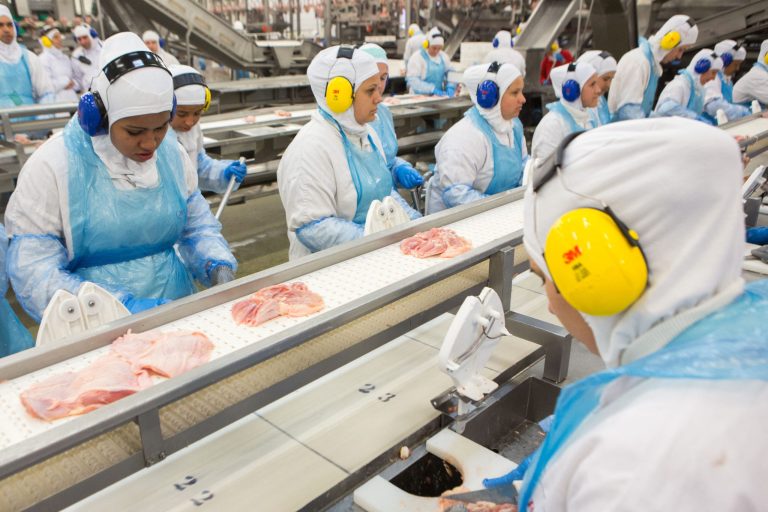São Paulo – After years of negotiations, Algeria opened its market for poultry imports from Brazil in October. For sales to begin, however, import tariffs, currently at 100%, still need to be reduced. According to the Market Director of the Brazilian meat lobby ABPA, Luis Rua, from the moment tariffs drop, Brazilian companies will be able to export “the next day,” as they are already able to meet the demands of that market, with the desired type of product, and because they are already producers and exporters of halal products, processed according to the laws of Islam. (Pictured above, a poultry processing plant).
“Brazil celebrated and continues to celebrate the opening of this market. First, I think it is the recognition of the sanitary status, quality, and health that Brazil now exports to over 150 countries, and Algeria also starts to recognize all these attributes that we know our poultry has,” he said. “The second issue is that Algerians are facing a turbulent time concerning food inflation,” said Rua.
After the opening of that market with the publication of the International Health Certificate (IHC) on October 12, private entities and government supply institutions began preparing to import Brazilian chicken. A mission including members of the ABPA, the Ministry of Foreign Affairs of Brazil, the meat exporting lobby ABIEC, and the Arab-Brazilian Chamber of Commerce visited the country from October 15 to 19.
A challenge still hampers exports to Algeria – currently, two import tariffs add up to 100%, making it difficult for exporters to sell in that market. “We were there. There was a commitment from the government, and we explained to them that with a 100% tariff, it would be very difficult to do business. They understood this and are now evaluating it and discussing it internally. It will go through a legislative process and everything else, which takes time, and we know and are hopeful that it will be withdrawn or reduced soon so that we can effectively start business,” said Rua. The expectation is a considerable reduction in this tariff to close to zero. “These adjustments are common in market openings,” added Rua, for whom “once this tariff issue is adjusted,” Brazil will have an important trading partner in Algeria.
The potential is still being assessed, but the country has 44 million inhabitants, and today, Brazil is the second-largest producer and largest poultry exporter in the world. It is also the largest halal poultry exporter, with shipments totaling two million tonnes yearly.
The Algerian market’s primary demand is frozen whole chickens over 1.3 kilograms. As a comparison, consumers in Saudi Arabia, a country that is one of the largest importers of Brazilian poultry, prefer whole chickens smaller than 1.3 kg. Rua mentioned there are also opportunities to sell frozen whole boneless chicken for shawarma and mechanically separated meat for food preparations.
Translated by Elúsio Brasileiro




